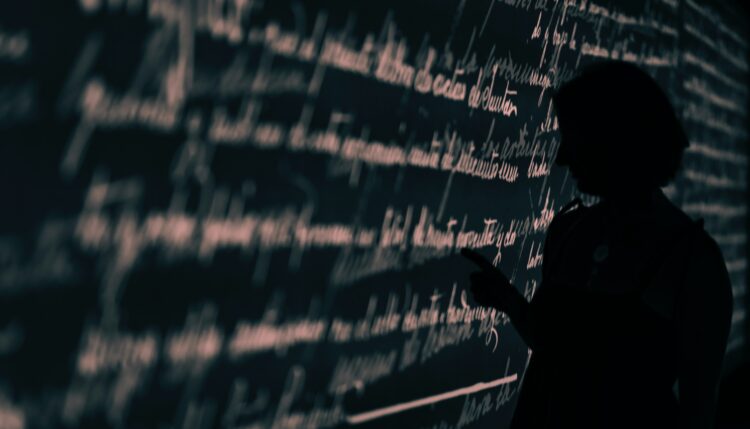
Literary Journalism in a Language Class
Introducing literary journalism to non-native students of English.
*Editor’s note: This article is from our archives. It originally appeared in Literary Journalism vol. 4, no. 4 (2010).
The course I am teaching in the M.A. program in Information and Communication Studies at my university is called “Language and Culture of English-Speaking Peoples,” which means I have plenty of elbow room to do whatever I want and to cover a wide range of geographies, albeit in only two years.
Needless to say that such a broad heading is as galvanizing as it is paralyzing: what can I possibly teach budding journalists who need to improve their language skills and gain insight into various cultures across the globe?
Our students attend a number of classes where they are mainly taught how to write short pieces in French, either for the traditional print press or for the web, usually with little time available and very strict deadlines. Yet they have no class in investigative journalism or feature writing, let alone creative writing. Such pedagogical choices are made to meet the demands of the job market and of the so-called “churnalism,” to use Nick Davies’s apt term. Therefore, teaching our students the art of grand reportage in the French tradition would appear as an indulgence.
While some of them may have heard of Joseph Kessel and Albert Londres, most ignore the likes of Norman Mailer or Truman Capote.
This glaring omission in the curriculum was my cue to take them into unchartered territories and teach them a few essentials about literary journalism. This chapter in the course, which is in a
lecture format, is a great opportunity to cover various aspects of American society, culture and politics, through the prism of nonfiction. Even though my students only get an overview of the genre, at least they become familiar with some of its representatives: Tom Wolfe and Hunter S. Thompson become our guides through the counterculture, Joan Didion opens our eyes on a number of political fictions, and David Foster Wallace makes us ponder American patriotism after 9/11.
Teaching literary journalism in English to non-native students who are still struggling with the language is undoubtedly a challenge, but also a highly rewarding task. Indeed, approaching the genre from a technical but also cultural and literary perspective makes students aware of its unique sense of possibility. While literary journalism appears to them as a liberating process, it also proves to be an empowering and transformative experience once they try their hands at it. And that is where I add a practical element to the course, in the final year.
At this stage, students have made some serious headway in English and have fewer problems with the language. They are given three substantial assignments, which are opportunities to develop all four linguistic skills, i.e. writing, reading, listening and speaking. Assignment One consists of writing a profile, in which they have to use nuanced vocabulary and correct grammar. They are encouraged to develop a keen eye for observation and expand their lexicon to create a distinctive atmosphere and scenes in which they insert details and quotes. Assignment Two is a 10-minute audio interview of the person described in the profile, i.e. a native speaker of English. It certainly is an ordeal for my students, who fear mutual incomprehension or an outright lack of communication.
About 60 students participate in the exercise. I give individual feedback to all of them, but only 12 to 15 profiles and interviews are selected for the peer-reviewing process, which is Assignment Three. The selection is posted on our “virtual university” platform. Students are invited to read these profiles, listen to the interviews and draw up their Top Three lists. Then they proceed on to writing a short review for each one. Again, it is essential that they use finely honed language to critique their classmates’ work.
Commenting on their peers’ texts and interviews help students understand the do’s and don’ts of such an exercise, and develop strong arguments. Unsurprisingly, the best pieces belong to the students who have done extensive research prior to the meeting and who used a wide palette of words to draw colorful portraits.
In a nutshell, what seemed like a very daunting task in the beginning proved a fascinating experience in collaborative learning, in which students could get a better command of English and improve their language proficiency. Granted, all the profiles and interviews
are not unforgettable pieces, but there are a few gems. Most importantly, all students have made a few steps in the right direction, gained self-confidence and assertiveness, and a real sense of achievement when it comes to English language practice. Moreover, the practice of literary journalism, which was completely unknown to most of them, has opened up new avenues for expression and whetted their appetite for further reading.
Isabelle Meuret is Associate Professor at the Université libre de Bruxelles, Belgium. She teaches English, cultures of the English-speaking world, and narrative journalism. She is Chair of the Master Program in Multilingual Communication. Her research interests are comparative literature, narrative medicine, and literary journalism. She guest-edited a special issue of Literary Journalism Studies on francophone reportage (2016) and contributed a chapter on global literary journalism to the Routledge Companion to American Literary Journalism (2020). She is currently guest-editing a theme issue of Literature and Medicine on “hunger and waste” (Spring 2022). She also participates in a project of the French Agence Nationale de la Recherche (Numapresse) on mediapoetics and cultural transfers.
